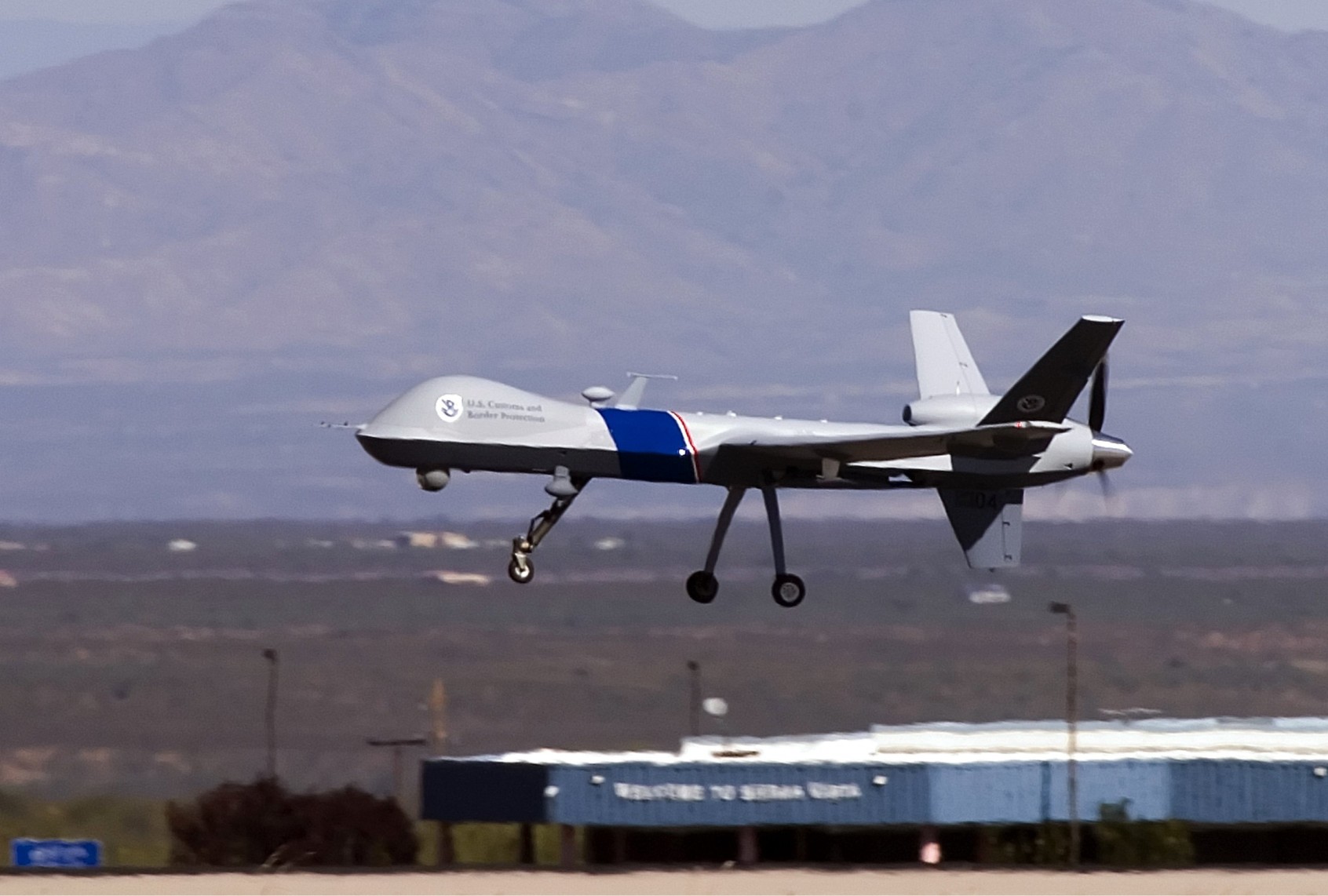The federal use of military drones at the Los Angeles anti-ICE protests in June has drawn strong criticism from civil liberties groups and politicians alike, with critics calling the practice “unconstitutional” and “dangerous.”
Typically used to surveil the U.S.-Mexico border, MQ-9 Predator drones are unmanned aerial vehicles (UAV) that operate at 20,000 feet and can relay real-time information to agencies like Customs and Border Protection (CBP) and Immigration and Customs Enforcement (ICE). Last June, the drones were confirmed by amateur flight trackers to be in operation during the anti-ICE protests in Los Angeles.
While the CPB said the drones were to “support” federal agents and “provide situational awareness,” critics say the use of military-grade drones has a more sinister purpose.
In July, Rep. Jimmy Gomez, D-Calif., introduced a bill to restrict drones like the MQ-9 from being deployed by the government during protests nationally.
“My bill to ban military surveillance drones over our cities puts Trump and his administration in check,” Gomez told the Los Angeles Times. “I refuse to allow Trump to use these weapons of war, capable of carrying bombs, as tools for law enforcement against civilians.”
The bill states that no taxpayer funds will be used by “any executive agency … to operate a covered unmanned aircraft vehicle in the United States to conduct surveillance of United States persons engaged in protests or civil disobedience.”
Start your day with essential news from Salon.
Sign up for our free morning newsletter, Crash Course.
Earlier this month, the Los Angeles City Council unanimously approved a resolution endorsing Gomez’s bill. The resolution was introduced by Councilmember Eunisses Hernandez, who called the use of drones in civilian protests “dangerous.”
“Los Angeles will not stand by while the federal government turns weapons of war against our residents,” Hernandez said. “Spying on people engaged in peaceful protest is unconstitutional, dangerous and a direct attack on democracy.”


